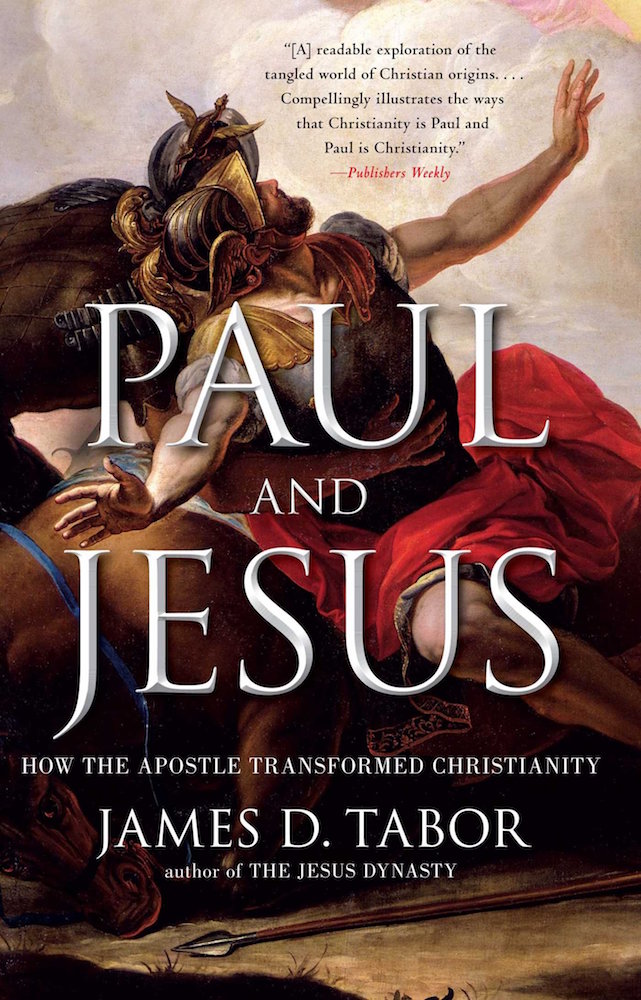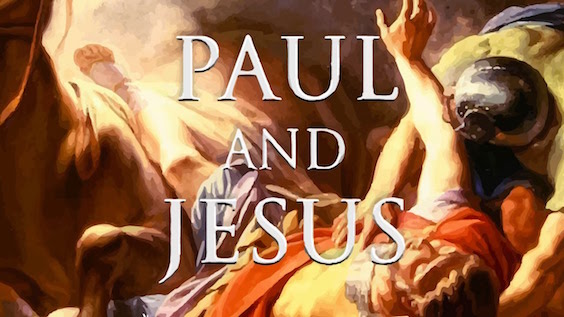 In November 2012, the author of The Jesus Dynasty once again released a book that challenged our thinking when it comes to Christian Origins. In his latest work, published by Simon and Schuster, James D. Tabor turns his academic attention to a thorough investigation of a particular way of defining and understanding Christianity. Of all the works he has published in over thirty years as a Biblical scholar and historian of Christian origins, this may prove to be Tabor’s most important contribution yet to our understanding of how and why we have come to believe the way we do. Tabor asserts and then sets out to prove that Catholics, mainstream Protestants and evangelicals have all inherited much of their Christianity, not from the teachings of Jesus but from the teachings of Paul.
In November 2012, the author of The Jesus Dynasty once again released a book that challenged our thinking when it comes to Christian Origins. In his latest work, published by Simon and Schuster, James D. Tabor turns his academic attention to a thorough investigation of a particular way of defining and understanding Christianity. Of all the works he has published in over thirty years as a Biblical scholar and historian of Christian origins, this may prove to be Tabor’s most important contribution yet to our understanding of how and why we have come to believe the way we do. Tabor asserts and then sets out to prove that Catholics, mainstream Protestants and evangelicals have all inherited much of their Christianity, not from the teachings of Jesus but from the teachings of Paul.
Even though this book may challenge readers, Tabor presents his convincing arguments in a way that is both respectful and sensitive. Tabor makes no excuses for Paul. For better or for worse, Tabor allows Paul to explain himself from his own words at every turn.
Tabor’s work claims that Paul effectively transformed Christianity from a thoroughly Jewish sect into something that would have been altogether foreign to Jesus and his first followers. He shows that for Paul, there was no interest in “Jesus according to the flesh.” Paul admittedly never met Jesus according to the flesh, but rather relates that in a series of visionary experiences or revelations, a “heavenly Christ” came to him with a message that would become his gospel. To Paul, these revelations surpassed all other views of Jesus thereby placing him in a unique position if not a superior role to convey matters of spiritual import.
Tabor works through six major points he derives from Paul’s letters to clearly show how Paul transformed the way people believe and in the process caused an irreparable rift between his own views and the views of the authentic “Jewish” faith of Jesus and his first followers. Paul and his views effectively won and authentic Jewish Christianity became marginalized and silenced. Church creeds would follow suit. Literal meanings of concepts would be replaced by allegorical interpretations carefully presented by the “least of all apostles.” The one who persecuted Christians at first became the champion of a new religion in the end.
Even if one disagrees with Tabor’s conclusions, the work contains much of value when it comes to understanding Paul and modern Christian beliefs and sacraments. In the end the reader is allowed to make his own mind up, but the decision may prove difficult for many. One is placed in the unenviable position of choosing between the religion of Jesus and a religion about him, also known as the religion of Paul.
Dr. James Tabor is the former Chair of the Department of Religious Studies (2004-2014) at the University of North Carolina at Charlotte where he is professor of Christian origins and ancient Judaism. He has his B.A. in Greek from Abilene Christian University (1966), his M.A. in Religion from Pepperdine University (1971), and an M.A. and Ph.D. in the History of Ancient Mediterranean Religions in the Humanities Division of the University of Chicago (1974, 1981).
Buy the book today! It is available from Amazon. Click here to buy it now.


